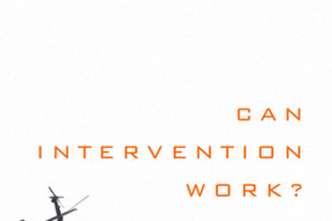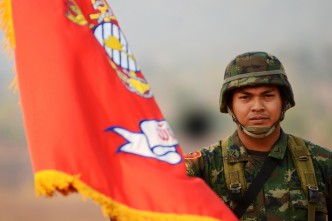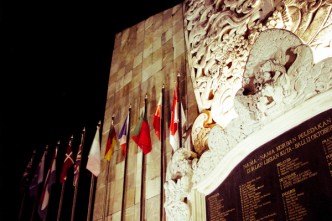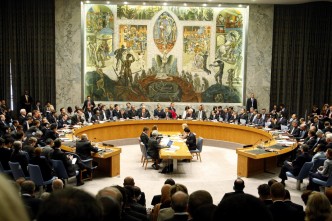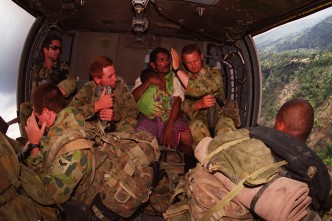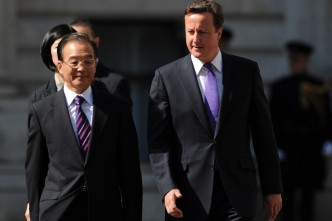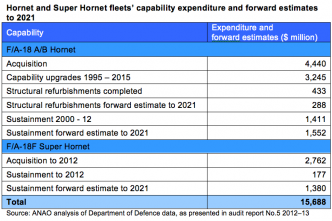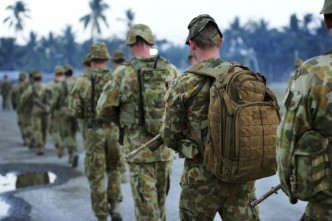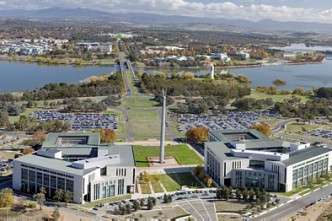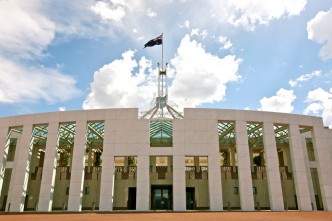In the globalised, interdependent world in which we live our modern lives, the keystone that keeps much of our economies, infrastructures, lines of communication, defence, security, intelligence and social capital enabled is the cyber domain. …
Throughout the last twenty years, foreign interventions have been staged in the Balkans, East Timor, Afghanistan, and Iraq. Each time convoys of diplomats, consultants, contractors, and aid workers arrive hard on the military’s tracks. Pursuing …
After my most recent trip to Thailand, I began to reflect upon the parallels in security between Thailand and Australia. It seems to me that Thailand faces a similar conundrum to Australia: its principal security …
Here’s our regular round-up of articles and analyses on the latest developments in strategy, defence and international security as well as upcoming events. First for today is Rohan Gunaratna at RSIS whose latest commentary looks …
Senator David Johnston, the Shadow Minister for Defence, spoke at an ASPI lunch yesterday. His speech was titled ‘The politics of defence’, but its main theme was why defence shouldn’t be political. Along the way, …
As we approach the tenth anniversary of the Bali bombing, there’ll be remembrance ceremonies, personal reflections, and the entirely justified acknowledgments of the successful law enforcement and security cooperation that emerged since 2002. But there …
The rise of India has been trumpeted by analysts and scholars for over a decade. Dietmar Rothermund’s India the rise of an Asian giant, Mira Kamdar’s Planet India, Edward Luce’s In spite of the gods: …
Hard times are upon Defence again, which will have implications for the way the nation’s military capability evolves. As Andrew Davies pointed out recently, much of the ADF’s capability today is thanks to a ramping …
It’s almost crunch time for Australia’s bid for a seat on the UN Security Council for the first time in 27 years. After a $25 million campaign which lasted several years and some recent lobbying …
Mitt Romney’s speech to the Virginia Military Institute on 8 October was, as he said, his chance to lay out the ‘vision’ for US foreign policy under his presidency. But anyone living in Asia reading …
As the final post in this series on grand strategy, I’m going to apply the framework developed earlier to one of the day’s biggest challenges (and opportunities)—China’s emergence on the world stage. Ironically, despite the …
After a long weekend, we’re back with the latest reports and events to suit the interests of Strategist readers. How easy are Southeast Asia’s seas to defend? Our first article for today is an RSIS …
It’s a(nother) public holiday in Canberra so we’ll be back tomorrow with our usual considered analysis, stats and graphs for your reading pleasure. The Strategist team
Al Palazzo’s post ‘A defence dividend need not become a defence liability’ raises some important points and provides sage advice to those responsible for the management of the Defence budget. One of the critical points …
The Ditchley Foundation is a respected British think tank established in 1958 to strengthen trans-Atlantic ties. Today it’s increasingly interested in the Asia–Pacific and I attended a recent Ditchley conference on ‘Security and Prosperity in …
The Australian National Audit Office last week released a pair of related audit reports, on the acquisition of the F-35 Joint Strike Fighter and the management of the current fast jet fleet. The reports are …
The Australian Government has recently announced a series of cuts to the Defence budget. According to Greg Sheridan, writing in The Australian, more possibly loom on the horizon. Those with an awareness of Australian defence …
Who is really in charge of the Defence Department? Many would guess the military chiefs, which is logical enough. Some would even say the Minister—civil control and all that. Or perhaps, given the recent discussion …
The Strategist team is back with our weekly compilation of latest reports, interesting discussion and upcoming events. The Australian National Audit Office has just released two linked audit reports on a subject near and dear …
Jennifer Westacott of the Business Council of Australia deserves credit for her speech on public service reform (PDF) a fortnight ago, and for the attention which she also drew to the roles of ministerial staff. Her …



